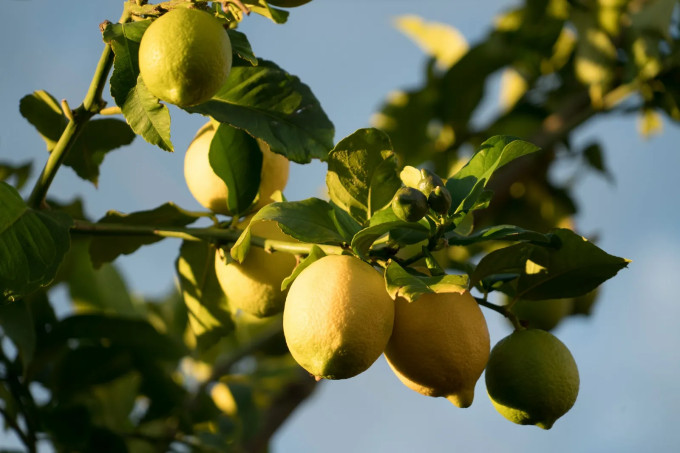Snacking on whole lemons? Here’s what experts say about this viral trend
The latest viral trend to take over social media has fruit foodies and content creators popping bite-sized lemons, as a whole, including the peel and the rind. A clinical expert decodes the health benefits and hazards of this ‘lemon snack’ craze.
What’s the buzz?
View this post on Instagram
A post shared by Billiton 🍉 (@billiton_groentefruit)
An Italian company named Lemon Snack is popular for its small lemons that are low in acidity and have edible peels. The snack, rich in antioxidant, is cultivated especially for direct consumption.
When a TikToker tried out this lemon in a German shop, the fruit snack caught the interest of netizens. Due to it’s exotic nature and lack of availability worldwide, people began using regular lemons instead.
 Antioxidants present in lemons, such as flavonoids, provide potent anti-inflammatory properties, potentially reducing the risk of chronic diseases, (Source: Unsplash)
Antioxidants present in lemons, such as flavonoids, provide potent anti-inflammatory properties, potentially reducing the risk of chronic diseases, (Source: Unsplash)
Is lemon a healthy snack?
“Lemons are indeed a fantastic choice for a healthy snack, particularly renowned for their high vitamin C content. A crucial nutrient that plays a pivotal role in supporting the immune system, promoting collagen synthesis for healthy skin, and aiding in the absorption of iron,” says Guru Prasad Das, Senior Dietitian, CARE Hospitals, Bhubaneswar.
“Moreover, the antioxidants present in lemons, such as flavonoids, provide potent anti-inflammatory properties, potentially reducing the risk of chronic diseases like heart disease and certain cancers,” he adds.
When asked whether people should be eating whole lemons, along with the peel and the rind, Dr Das says that, “The peel contains higher concentrations of fiber, vitamin C, and various phytochemicals compared to the flesh. These compounds support digestive health and regulate blood sugar levels.”
Some culinary traditions incorporate lemon zest, the finely grated outer layer of the peel, to add a burst of flavor to dishes ranging from desserts to savory meals. Consuming the entire peel and rind in one sitting might not be palatable for everyone due to their bitter taste and tough texture.
Things to keep in mind
“In terms of safety, eating small amounts of lemon peel and rind is generally considered safe for most people. However, it’s crucial to ensure that the lemon is thoroughly washed to remove any surface contaminants, including pesticides or wax coatings applied during cultivation and transportation,” Dr Das said.
Dr Das, however, also said individuals with sensitivities or allergies to citrus fruits should exercise caution when consuming lemon peel and rind, as they may experience adverse reactions.
Disclaimer: The copyright of this article belongs to the original author. Reposting this article is solely for the purpose of information dissemination and does not constitute any investment advice. If there is any infringement, please contact us immediately. We will make corrections or deletions as necessary. Thank you.
